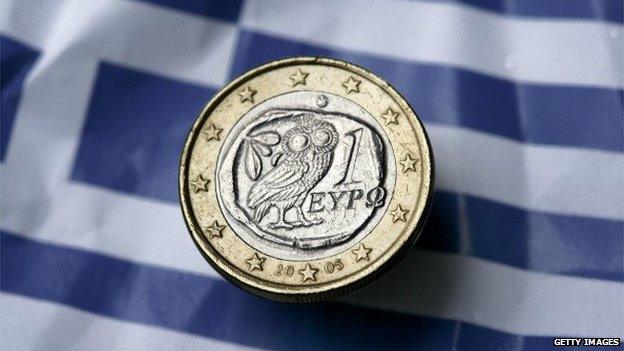Greece on verge of euro exit
- Published
- comments

The Greek prime minister says he does not want a rupture with Europe but he may not be able to avoid a rupture with the euro.
It was striking that Alexis Tsipras echoed the words of a top banker to whom I spoke today when warning that the European Central Bank's [ECB] decision to freeze emergency lending to Greek banks a week ago is causing a humanitarian disaster.
Because even encumbered by savage restrictions on cash transfers and withdrawals, Greek banks are just days away from running out of cash and collapsing.
In those circumstances, not only would millions of Greeks lose their savings, but companies would collapse. And Greece would run out of vital imported food, raw materials and medicine.
Greek banks are desperately in need of a lender of last resort to save them, and the Greek economy.
And sad to say no banker or central banker to whom I have spoken believes the ECB can fulfil that function - because it is struggling to prove to itself that Greek banks have adequate assets to pledge to it as security for new loans.
There are only two options. The Bank of Greece could make unsecured loans to Greek banks without the ECB's permission - which would provoke a furious reaction from Eurozone leaders and would be seen by most of them as tantamount to leaving the euro.
Or it can explicitly create a new currency, a new Drachma, which it could then use to provide vital finance to Greek banks and the Greek economy.
This huge risk, of a Greek exit from the euro, is tonight preoccupying governments, central banks and investors all over the world.
Monday will be a very hairy day on markets.
And although the ECB is expected to continue to refuse to rescue Greek banks, it will chuck billions of euros at bond markets, to prevent the borrowing costs of other vulnerable euro economies rising too far and too fast.